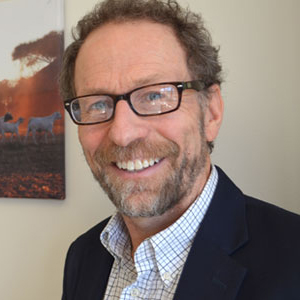I-TECH supports a variety of activities aimed at improving HIV care and treatment in the Caribbean region, such as on-site clinical mentoring, development of training curricula, and providing clinical support materials to improve care and treatment for HIV/AIDS in the Caribbean region.
Continue reading “Improving HIV Care and Treatment across the Caribbean”
Category: Technical Areas
eLearning Programs in the Caribbean
I-TECH has partnered with universities and ministries of health (MoH) in the region to develop accessible in-service training opportunities for HIV providers using distance and blended learning.
Improving HIV Care for Key Populations in the Caribbean
Key, at-risk populations in the region include men who have sex with men (MSM), bisexual men, transgender women, and sex workers. In Jamaica, HIV prevalence among MSM was estimated at 32.8%,1 as compared to an estimated prevalence of 1.8% in the general adult population in 2017.1 Among transgender women, the HIV prevalence was estimated between 25.2%2 – 52.9%3 and among female sex workers, HIV prevalence is estimated at 2%.1 Reducing stigma and discrimination toward vulnerable groups in health care settings can have a positive impact on enrollment in care, retention in care and treatment, and viral suppression of HIV in communities most heavily burdened by HIV infection.
Continue reading “Improving HIV Care for Key Populations in the Caribbean”
Continuous Quality Improvement Collaborative in the Caribbean
Since 2013, I-TECH has led quality improvement (QI) collaboratives in the Caribbean region, enabling multidisciplinary teams at health facilities to work toward a common goal of improving care and treatment for HIV-positive patients.
Continue reading “Continuous Quality Improvement Collaborative in the Caribbean”
Layering Research and Practice in Haiti
The EMR iSanté enables research on population health in Haiti, including the implementation of Option B+. This work was presented at the International AIDS Society Conference in 2015 Continue reading “Layering Research and Practice in Haiti”
Gabrielle O’Malley

Gabrielle O’Malley, MA, PHD, is I-TECH’S Director of Implementation Science. Dr. O’Malley has worked as an applied research and evaluation professional for over 25 years. Her experience includes a wide variety of international and domestic programs including child survival, private agricultural enterprise, medical education, community technology, reproductive health, HIV prevention (PrEP), and care and treatment as well as applied research for private industry. Her research interests include innovative practices for program evaluation and improvement, formative research, qualitative methods, and the relationship of gender and health.
Dr. O’Malley received her PhD from UW, an MA from Johns Hopkins University and a BA from Smith College.
Program Highlights
Pamela Kohler

Pamela Kohler, PhD, MPH, BSN, is a Professor and holds joint appointments in the departments of Child, Family, and Population Health Nursing, and the Department of Global Health. At I-TECH, Dr. Kohler led the Tanzania Intermediate Field Epidemiology Training Program (FETP) and currently leads the evaluation and continuous quality improvement activities of the Afya Hatua Project under Tanzania Health Promotion Support. She has led multiple evaluations of programs and policies throughout Eastern and Southern Africa, including HIV differentiated care, cervical cancer screening and treatment, and cryptococcol meningitis services.
Dr. Kohler’s research involves development and testing of health services interventions to improve engagement in HIV care. She led two trials using standardized patient actors to destigmatize HIV prevention and treatment services for adolescents in Kenya and currently leads a stepped care intervention, assigning intensity of services to those with highest need, in Western Kenya. Dr. Kohler completed her nursing training at Johns Hopkins University, and worked clinically in HIV care and Emergency Departments. She holds a PhD in Nursing and an MPH in Health Services from the University of Washington.
Publications
McConnico C, Jed SL, Marumo E, Mazibuko S, Mema GM, DeKadt J, Holmes K, Kohler PK. Systems Mapping of Sexually Transmitted Infection Services at Three Clinical Sentinel Surveillance Sites in South Africa: Opportunities for Integrated Care. J Assoc Nurses AIDS Care. 2017 Jan-Feb. pii: S1055-3290(16)30121-2. doi: 10.1016/j.jana.2016.09.004.
Kohler PK, Marumo E, Jed SL, Mema G, Galagan S, Tapia K, Pillay E, DeKadt J, Naidoo E, Dombrowski JC, Holmes KK. A national evaluation using standardised patient actors to assess STI services in public sector clinical sentinel surveillance facilities in South Africa. Sex Transm Infect. 2017 Jan 27. pii: sextrans-2016-052930. doi: 10.1136/sextrans-2016-052930.
Kohler PK, Tippett Barr BA, Kangʼombe A, Hofstee C, Kilembe F, Galagan S, Chilongozi D, Namate D, Machaya M, Kabwere K, Mwale M, Msunguma W, Reed J, Chimbwandira F. Safety, Feasibility, and Acceptability of the PrePex Device for Adult Male Circumcision in Malawi. J Acquir Immune Defic Syndr. 2016 Jun 1;72 Suppl 1:S49-55. doi: 10.1097/QAI.0000000000000774.
Kohler PK, Namate D, Barnhart S, Chimbwandira F, Tippet-Barr BA, Perdue T, Chilongozi DA, Tenthani L, Phiri O, Msungama W, Holmes KK, Krieger JN. Classification and rates of adverse events in a Malawi male circumcision program: impact of quality improvement training. BMC Health Serv Res. 2016 Feb 17;16(1):61. doi: 10.1186/s12913-016-1305-x.
Program Highlights
Peter Rabinowitz

Peter Rabinowitz, MD, MPH, directs the Center for One Health Research and has multiple faculty appointments including Professor, Global Health, at UW. The “One Health” center explores linkages between human, animal, and environmental health. Dr. Rabinowitz has expertise in zoonotic infectious disease; diseases of animal workers; microbiome sharing between humans and animals; emerging infectious disease; antimicrobial resistance animal sentinels of environmental health hazards; and noise and hearing loss.
Dr. Rabinowitz also directs the Canary Database, an online resource for evidence about animals as sentinels of environmental health threats from both toxic and infectious hazards. He was a visiting scientist at the Global Influenza Program of the WHO, and also in the Animal Health Division of the U.N. Food and Agriculture Organization (FAO). He completed a Family Medicine residency through the University of California San Francisco, and completed fellowships in General Preventive Medicine and Occupational and Environmental Medicine at the Yale School of Medicine.
Program Highlights
Matthew Golden

Matthew Golden, MD, is a Professor, UW Division of Allergy and Infectious Disease, and he is Director of a the UW and Public Health, Seattle & King County (PHSKC) – HIV/STD Control Program, a collaborative project aimed at evaluating new public health interventions to control sexually transmitted infections (STIs), including HIV. This project also provides a fellowship training opportunity to teach how to integrate research and public health practice.
Dr. Golden works on research and public health projects related to HIV partner services in several countries in sub-Saharan Africa. He is the principal investigator of a CDC grant aimed at providing assistance to U.S. health departments in high-impact HIV prevention and training opportunities for persons interested in careers in HIV/STD-related public health practice. His research includes evaluations of population-based interventions to improve HIV care, a study of seroadaptive behaviors among men who have sex with men, research on new treatments for gonorrhea and HIV/STD surveillance projects, and program evaluations.
Program Highlights
Field Epidemiology Training Program in Malawi
The Frontline Field Epidemiology Training Program (Frontline FETP) enhances the capacity of HIV and AIDS surveillance and strengthens health systems. The program contributes to a sustainable response to HIV by training health professionals in basic field epidemiology that can support responsiveness to HIV surveillance needs. Continue reading “Field Epidemiology Training Program in Malawi”